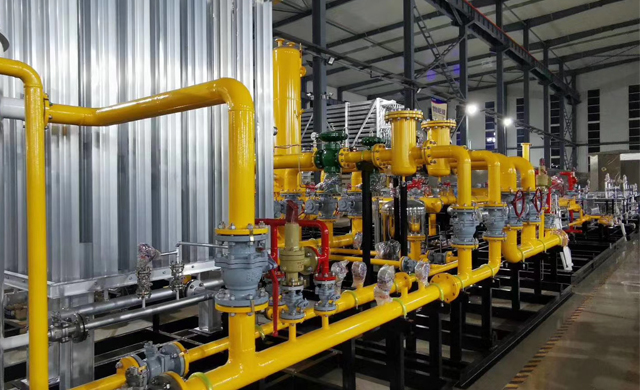
Dec . 12, 2024 22:18
Back to list
Optimizing Gas Filters for Enhanced Air Quality Management Solutions
Understanding Gas Filters Importance and Applications
Gas filters play a pivotal role in various industrial processes and environmental management. These filters are designed to remove harmful substances from gases, making them safer for release into the atmosphere or for use in different applications. As the world becomes increasingly aware of environmental issues, the importance of gas filtration systems has grown exponentially.
What is a Gas Filter?
A gas filter is a device that removes particulates, impurities, or contaminants from gases. These filters can be made from a variety of materials, including activated carbon, ceramic, and synthetic fibers, depending on the intended application and the type of gases to be filtered. The primary function of a gas filter is to clean the air or gases by trapping pollutants, thus improving air quality and protecting human health.
Types of Gas Filters
There are several types of gas filters, each suited for different applications
1. High-Efficiency Particulate Air (HEPA) Filters These filters can capture at least 99.97% of particles that are 0.3 microns in diameter. They are commonly used in medical facilities and laboratories to ensure a clean air environment.
2. Activated Carbon Filters These utilize activated carbon's porous surface to adsorb volatile organic compounds (VOCs) and odors from gases. They are widely used in air purifiers and industrial processes to improve air quality.
3. Electrostatic Precipitators These devices use electrical forces to remove particulate matter from industrial exhaust gases. They are particularly effective in settings such as power plants and manufacturing facilities.
4. Chemical Filters These filters are designed to remove specific chemicals from gases, such as acid gases (e.g., sulfur dioxide) and ammonia. They are used in both environmental control systems and industrial applications.
Applications of Gas Filters
gas filter

Gas filters are utilized in a diverse range of applications
- Air Pollution Control Industries such as power generation, manufacturing, and waste management employ gas filters to reduce emissions and comply with environmental regulations. This is critical for minimizing air pollution and protecting public health.
- HVAC Systems Heating, ventilation, and air conditioning systems incorporate gas filters to enhance indoor air quality. They help eliminate allergens, dust, and harmful gases, contributing to healthier living and working environments.
- Industrial Processes Many manufacturing processes involve gases that can be hazardous if released untreated. Gas filters are essential in these settings to ensure that only cleansed gases are emitted into the atmosphere.
- Respiratory Protection In various industries, employees are at risk of exposure to harmful gases. Gas masks and respirators equipped with specialized filters protect workers from inhaling toxic substances.
Challenges and Future Developments
Despite their importance, gas filters face challenges. One significant issue is the saturation and clogging of filters, which can reduce their efficiency and require frequent replacement. Additionally, the disposal of used filters poses environmental concerns, as some filters can contain hazardous substances.
The future of gas filtration technology looks promising with advancements in materials and design. Innovations such as nanotechnology and the development of eco-friendly filters are already making headway. Researchers are exploring advanced filtration materials that can capture a broader range of pollutants while being more durable and sustainable.
Conclusion
Gas filters are an essential component in the quest for cleaner air and a healthier environment. Their ability to remove harmful substances from gases not only aids in regulatory compliance but also enhances public health. As technology advances, gas filtration systems will continue to evolve, offering more efficient, effective, and sustainable solutions for improving air quality in various regions across the globe. Awareness and proper implementation of these systems can lead to significant improvements in both environmental standards and human well-being.
Next:
Latest news
-
Safety Valve Spring-Loaded Design Overpressure ProtectionNewsJul.25,2025
-
Precision Voltage Regulator AC5 Accuracy Grade PerformanceNewsJul.25,2025
-
Natural Gas Pressure Regulating Skid Industrial Pipeline ApplicationsNewsJul.25,2025
-
Natural Gas Filter Stainless Steel Mesh Element DesignNewsJul.25,2025
-
Gas Pressure Regulator Valve Direct-Acting Spring-Loaded DesignNewsJul.25,2025
-
Decompression Equipment Multi-Stage Heat Exchange System DesignNewsJul.25,2025

